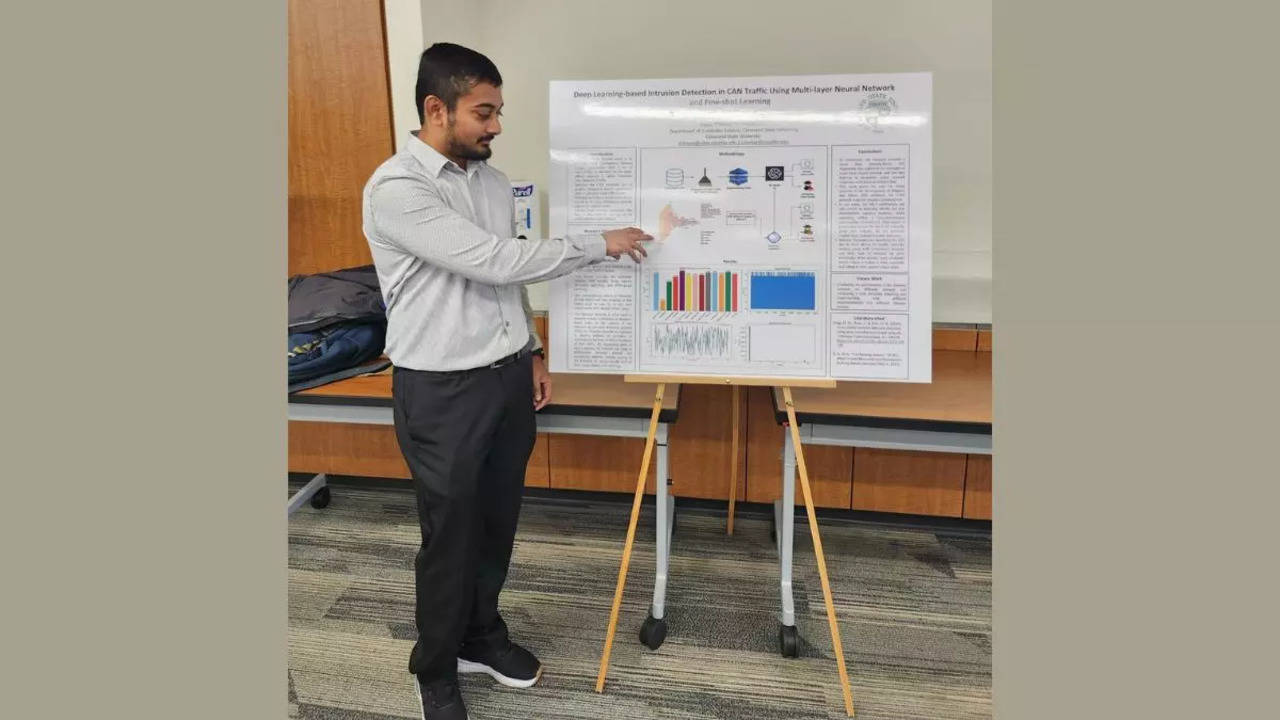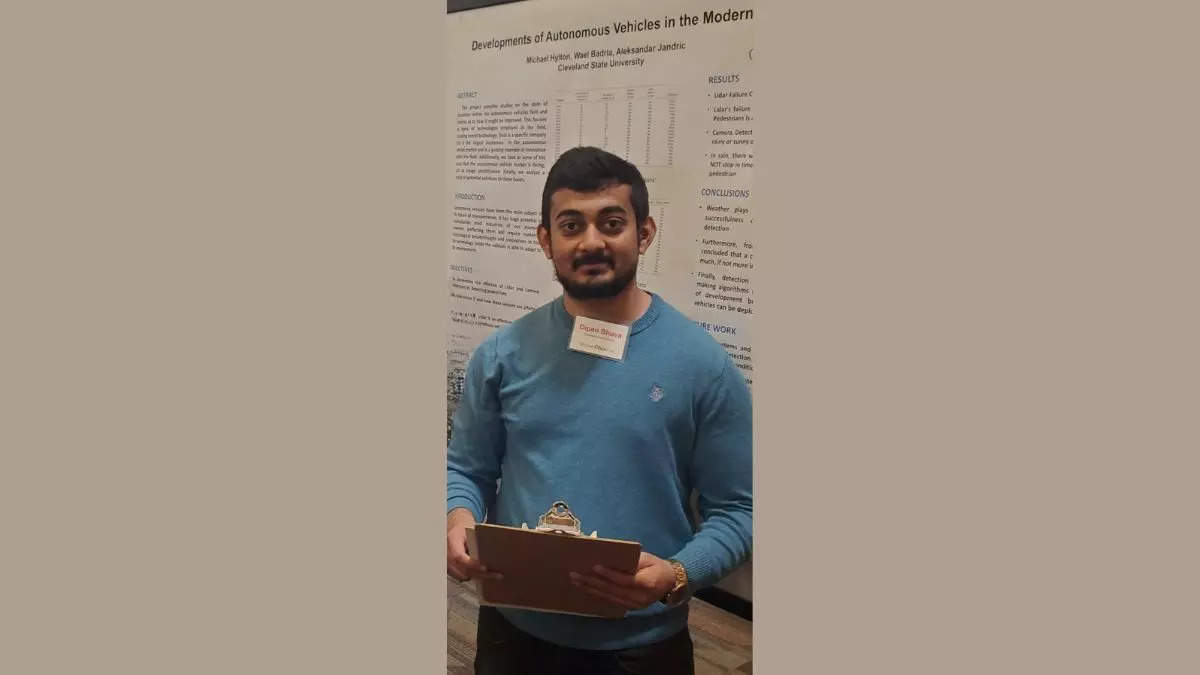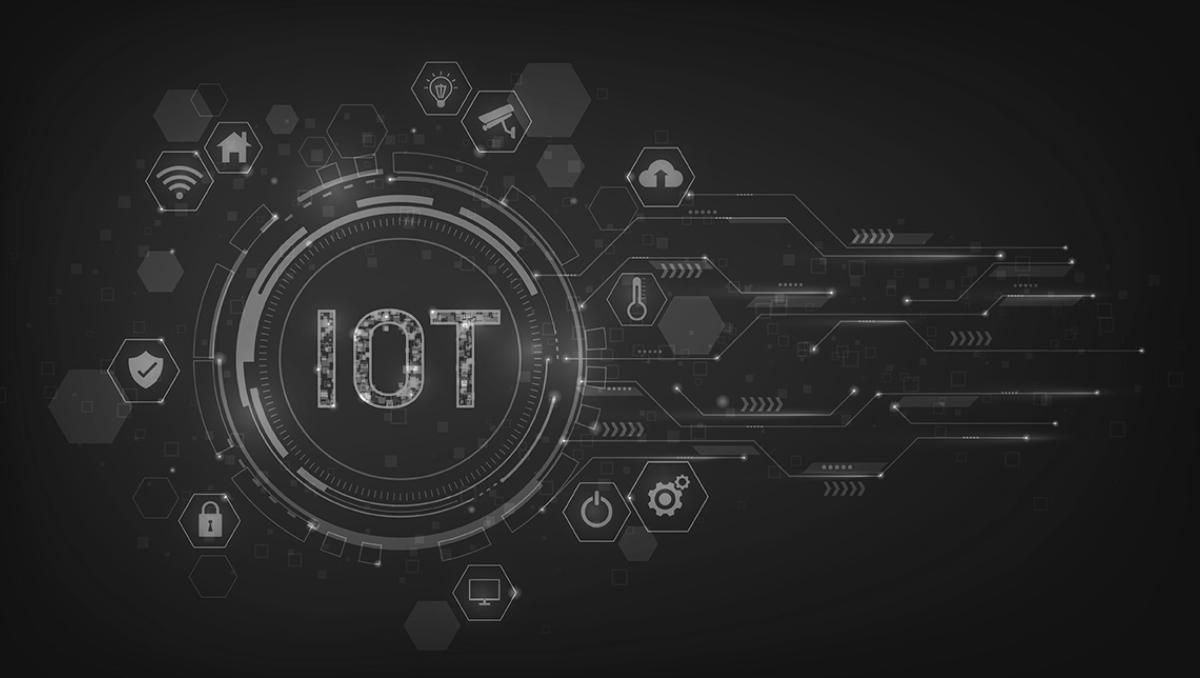
New Delhi (India), April 5: In a world increasingly threatened by digital vulnerabilities, Dipen Bhuva emerges as a beacon of hope with his cutting-edge contributions to cybersecurity and artificial intelligence (AI). A Ph.D. candidate at Cleveland State University, Bhuva has seamlessly merged machine learning and AI with cybersecurity measures, marking a significant leap from his beginnings with a Bachelor of Engineering degree. His commitment to elevating digital safety extends into the healthcare domain, where his innovative research promises to safeguard data while transforming patient care.
“Diving into the synergy between AI, machine learning, healthcare, and cybersecurity has opened new frontiers among researchers” Dipen says, highlighting the core of his research mission.

Bhuva’s scholarly works shine a spotlight on the transformative power of machine learning across both digital defense mechanisms and medical diagnostics. Among his acclaimed publications are studies on “detecting covid-19 cough with machine learning and AI from audio calls,” featured in Elsevier’s Biomedical Signal Processing and Control, and “heart disease detection with machine learning,” published in IEEE Access. His collaboration with NASA Glenn Research Center on securing space communications with blockchain technology showcases the wide-reaching implications of his efforts. Furthermore, his research on “continuous authentication with the help of heartbeat and hand gesture” introduces a novel approach to security, shifting from traditional passwords to biometric authentication methods. Bhuva’s contribution to the Springer volume on network and systems in cybernetics underlines his role as a key figure in advancing e-learning systems’ test quality.
Dipen Bhuva’s extensive research journey illuminates the pivotal role of machine learning and artificial intelligence (AI) in reshaping cybersecurity and healthcare. Through his work, Dipen explores the application of machine learning algorithms to enhance the security of digital infrastructures and improve patient care. “The integration of AI and machine learning into cybersecurity and healthcare is not just a trend; it’s a transformative shift that’s making these fields more sophisticated and secure,” Dipen comments. He highlights the innovative use of AI in detecting and mitigating cyber threats in real-time and its application in diagnosing diseases with unprecedented accuracy. “Machine learning’s ability to analyze vast datasets can revolutionize healthcare delivery by predicting outbreaks, personalizing patient care, and optimizing treatments. Similarly, in cybersecurity, it’s crucial for threat detection and system integrity,” Dipen adds, emphasizing the dual impact of these technologies in both protecting digital spaces and enhancing health outcomes.
Beyond his research, Bhuva actively participates in the cybersecurity community, holding memberships with the Ohio Cyber Range, Ohio SuperComputers, and Women in Cybersecurity. This dual role of researcher and advocate highlights Bhuva’s vision for a future where technology is both advanced and inclusive. His academic and professional journey exemplifies the profound impact that a blend of research dedication and technological passion can have on the realms of cybersecurity and healthcare innovation.
Dipen Bhuva Discovers and Shares His Calling in Bridging Cybersecurity and Healthcare Through AI.
In a world increasingly threatened by digital vulnerabilities, Dipen Bhuva emerges as a beacon of hope with his cutting-edge contributions to cybersecurity and artificial intelligence (AI). A Ph.D. candidate at Cleveland State University, Bhuva has seamlessly merged machine learning and AI with cybersecurity measures, marking a significant leap from his beginnings with a Bachelor of Engineering degree. His commitment to elevating digital safety extends into the healthcare domain, where his innovative research promises to safeguard data while transforming patient care.
“Diving into the synergy between AI, machine learning, healthcare, and cybersecurity has opened new frontiers among researchers” Dipen says, highlighting the core of his research mission.
Bhuva’s scholarly works shine a spotlight on the transformative power of machine learning across both digital defense mechanisms and medical diagnostics. Among his acclaimed publications are studies on “detecting covid-19 cough with machine learning and AI from audio calls,” featured in Elsevier’s Biomedical Signal Processing and Control, and “heart disease detection with machine learning,” published in IEEE Access. His collaboration with NASA Glenn Research Center on securing space communications with blockchain technology showcases the wide-reaching implications of his efforts. Furthermore, his research on “continuous authentication with the help of heartbeat and hand gesture” introduces a novel approach to security, shifting from traditional passwords to biometric authentication methods. Bhuva’s contribution to the Springer volume on network and systems in cybernetics underlines his role as a key figure in advancing e-learning systems’ test quality.
Dipen Bhuva’s extensive research journey illuminates the pivotal role of machine learning and artificial intelligence (AI) in reshaping cybersecurity and healthcare. Through his work, Dipen explores the application of machine learning algorithms to enhance the security of digital infrastructures and improve patient care. “The integration of AI and machine learning into cybersecurity and healthcare is not just a trend; it’s a transformative shift that’s making these fields more sophisticated and secure,” Dipen comments. He highlights the innovative use of AI in detecting and mitigating cyber threats in real-time and its application in diagnosing diseases with unprecedented accuracy. “Machine learning’s ability to analyze vast datasets can revolutionize healthcare delivery by predicting outbreaks, personalizing patient care, and optimizing treatments. Similarly, in cybersecurity, it’s crucial for threat detection and system integrity,” Dipen adds,
emphasizing the dual impact of these technologies in both protecting digital spaces and enhancing health outcomes.
Beyond his research, Bhuva actively participates in the cybersecurity community, holding memberships with the Ohio Cyber Range, Ohio SuperComputers, and Women in Cybersecurity. This dual role of researcher and advocate highlights Bhuva’s vision for a future where technology is both advanced and inclusive. His academic and professional journey exemplifies the profound impact that a blend of research dedication and technological passion can have on the realms of cybersecurity and healthcare innovation



